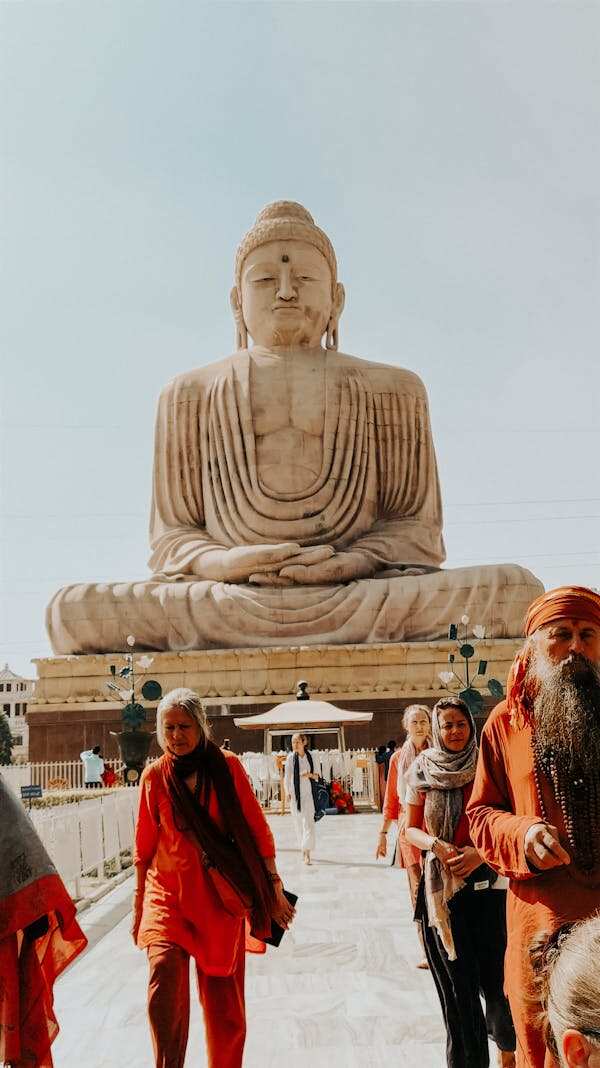A shaken US government has recovered at least some of its faith in President Pervez Musharraf of Pakistan, believing he still has a chance to promote democracy.
WASHINGTON: A shaken US government has recovered at least some of its faith in President Pervez Musharraf of Pakistan, believing he still has a chance to promote democracy and defeat terrorism.
Conceding that Al-Qaeda has turned its focus from Afghanistan to Pakistan, US officials argue that pushing for democracy is the central Asian Muslim nation's best long-term hope of keeping extremists at bay.
To be sure, top officials say, Musharraf has reversed course since he imposed emergency rule November 3, which prompted both a review of US aid to Pakistan and a broader debate on his status as ally in the war on terror.
However, they insist, he must pass further tests on the way to and during parliamentary elections he has set for January 8.
"He has been a good ally in the war on terror... (but) it was not a good decision to impose a state of emergency," Secretary of State Condoleezza Rice told last week on Pakistan and other topics.
"He's lifted the state of emergency. He's taken off the (army) uniform. And now I hope that he is going to oversee the return of Pakistan to a civilian-led democratic state," she said.
"They need to have free and fair elections," Rice said, adding that the test does not begin the day of elections but "when opposition can gather" and all media can air views freely.
Rice did not give a direct reply when asked if it was premature to say whether Musharraf had Washington's full confidence.
"We have a good relationship with President Musharraf and our ambassador is in constant contact with him. The key here is that these elections move Pakistan forward on the democratic path. That's the key," Rice stressed.
In testimony to Congress on December 6, Richard Boucher, the assistant secretary of state for South and Central Asian Affairs, talked of "this long, sometimes troubling and sometimes encouraging chain of events.
"We are encouraged that at the end of this chain will be parliamentary elections ... that we hope will lead to the formation of a civilian-led government under a civilian president for the first time since 1999," he said.
Musharraf was sworn in as a civilian president on November 29, after reluctantly shedding his army uniform. Washington hopes parliamentary elections will result in a prime minister with popular backing.
"This would be a significant step forward for Pakistani democracy," Boucher told a Senate foreign relations subcommittee reviewing US assistance to Pakistan that has amounted to about 10 billion dollars since 2001.
Musharraf, a general who seized power in a bloodless coup in 1999, became a key US ally after the September 11, 2001 attacks, siding with the United States against Al-Qaeda and the Taliban in neighboring Afghanistan.
But Congress last week slapped restrictions on US military aid to Pakistan, creating a rift with George W. Bush's administration on how aggressively to pursue democratic reform there, congressional observers said.
And Freedom House, along with key human rights groups, on Friday published a letter to Rice saying Washington was not doing enough to ensure free and fair elections.
"We remained deeply concerned that you and President Bush have not yet called unequivocally for the restoration of the independent judiciary and the lifting of restrictions on the media," the letter said.
Musharraf has stacked the Supreme Court with his own choice of judges.
US officials are meanwhile worried about inroads the extremists are making in Pakistani territory.
"Al-Qaeda right now seems to have turned its face toward Pakistan and attacks on the Pakistani government and Pakistani people," Defense Secretary Robert Gates told on Friday.
Two weeks ago, Boucher told the Senate subcommittee that "Pakistan is, of course, our indispensable ally in that struggle," which he says is to repel "a minority" of extremists threatening Pakistan, Afghanistan and the wider world.
Bush once called Musharraf an "indispensable" ally.
Harvard University's Hassan Abbas and other analysts have seized on increased references to Pakistan as an ally as a sign Washington was no longer as committed to Musharraf as before, but now say it is warming up to him again.
A US official who asked not to be named told, "The US government sees Pakistan as an ally as well as current President Pervez Musharraf, because a relationship with the nation and the president are not exclusive."
![submenu-img]() Meet Gautam Adani’s ‘right hand’, used to work as teacher, he’s now Rs 1600000 crore…
Meet Gautam Adani’s ‘right hand’, used to work as teacher, he’s now Rs 1600000 crore…![submenu-img]() Meet actor who worked with Amitabh Bachchan, Aishwarya Rai, entered films because of a bus conductor, is now India's..
Meet actor who worked with Amitabh Bachchan, Aishwarya Rai, entered films because of a bus conductor, is now India's..![submenu-img]() Meet Bollywood star, who was a tourist guide, married 4 times, went bankrupt, his son died by suicide, then...
Meet Bollywood star, who was a tourist guide, married 4 times, went bankrupt, his son died by suicide, then...![submenu-img]() This actor made Sharmila Tagore forget her lines, once did film for Rs 100, could never be a superstar because..
This actor made Sharmila Tagore forget her lines, once did film for Rs 100, could never be a superstar because..![submenu-img]() Volkswagen Taigun GT Line, Taigun GT Plus launched in India, price starts at Rs 14.08 lakh
Volkswagen Taigun GT Line, Taigun GT Plus launched in India, price starts at Rs 14.08 lakh![submenu-img]() DNA Verified: Is CAA an anti-Muslim law? Centre terms news report as 'misleading'
DNA Verified: Is CAA an anti-Muslim law? Centre terms news report as 'misleading'![submenu-img]() DNA Verified: Lok Sabha Elections 2024 to be held on April 19? Know truth behind viral message
DNA Verified: Lok Sabha Elections 2024 to be held on April 19? Know truth behind viral message![submenu-img]() DNA Verified: Modi govt giving students free laptops under 'One Student One Laptop' scheme? Know truth here
DNA Verified: Modi govt giving students free laptops under 'One Student One Laptop' scheme? Know truth here![submenu-img]() DNA Verified: Shah Rukh Khan denies reports of his role in release of India's naval officers from Qatar
DNA Verified: Shah Rukh Khan denies reports of his role in release of India's naval officers from Qatar![submenu-img]() DNA Verified: Is govt providing Rs 1.6 lakh benefit to girls under PM Ladli Laxmi Yojana? Know truth
DNA Verified: Is govt providing Rs 1.6 lakh benefit to girls under PM Ladli Laxmi Yojana? Know truth![submenu-img]() Remember Abhishek Sharma? Hrithik Roshan's brother from Kaho Naa Pyaar Hai has become TV star, is married to..
Remember Abhishek Sharma? Hrithik Roshan's brother from Kaho Naa Pyaar Hai has become TV star, is married to..![submenu-img]() Remember Ali Haji? Aamir Khan, Kajol's son in Fanaa, who is now director, writer; here's how charming he looks now
Remember Ali Haji? Aamir Khan, Kajol's son in Fanaa, who is now director, writer; here's how charming he looks now![submenu-img]() Remember Sana Saeed? SRK's daughter in Kuch Kuch Hota Hai, here's how she looks after 26 years, she's dating..
Remember Sana Saeed? SRK's daughter in Kuch Kuch Hota Hai, here's how she looks after 26 years, she's dating..![submenu-img]() In pics: Rajinikanth, Kamal Haasan, Mani Ratnam, Suriya attend S Shankar's daughter Aishwarya's star-studded wedding
In pics: Rajinikanth, Kamal Haasan, Mani Ratnam, Suriya attend S Shankar's daughter Aishwarya's star-studded wedding![submenu-img]() In pics: Sanya Malhotra attends opening of school for neurodivergent individuals to mark World Autism Month
In pics: Sanya Malhotra attends opening of school for neurodivergent individuals to mark World Autism Month![submenu-img]() DNA Explainer: What is cloud seeding which is blamed for wreaking havoc in Dubai?
DNA Explainer: What is cloud seeding which is blamed for wreaking havoc in Dubai?![submenu-img]() DNA Explainer: What is Israel's Arrow-3 defence system used to intercept Iran's missile attack?
DNA Explainer: What is Israel's Arrow-3 defence system used to intercept Iran's missile attack?![submenu-img]() DNA Explainer: How Iranian projectiles failed to breach iron-clad Israeli air defence
DNA Explainer: How Iranian projectiles failed to breach iron-clad Israeli air defence![submenu-img]() DNA Explainer: What is India's stand amid Iran-Israel conflict?
DNA Explainer: What is India's stand amid Iran-Israel conflict?![submenu-img]() DNA Explainer: Why Iran attacked Israel with hundreds of drones, missiles
DNA Explainer: Why Iran attacked Israel with hundreds of drones, missiles![submenu-img]() Meet actor who worked with Amitabh Bachchan, Aishwarya Rai, entered films because of a bus conductor, is now India's..
Meet actor who worked with Amitabh Bachchan, Aishwarya Rai, entered films because of a bus conductor, is now India's..![submenu-img]() Meet Bollywood star, who was a tourist guide, married 4 times, went bankrupt, his son died by suicide, then...
Meet Bollywood star, who was a tourist guide, married 4 times, went bankrupt, his son died by suicide, then...![submenu-img]() This actor made Sharmila Tagore forget her lines, once did film for Rs 100, could never be a superstar because..
This actor made Sharmila Tagore forget her lines, once did film for Rs 100, could never be a superstar because..![submenu-img]() Mumtaz urges to lift ban on Pakistani artistes in Bollywood: ‘Woh log hum logon se...'
Mumtaz urges to lift ban on Pakistani artistes in Bollywood: ‘Woh log hum logon se...'![submenu-img]() Not Kiara Advani, but this actress was first choice opposite Shahid Kapoor in Kabir Singh, she rejected because...
Not Kiara Advani, but this actress was first choice opposite Shahid Kapoor in Kabir Singh, she rejected because...![submenu-img]() IPL 2024: Yashasvi Jaiswal, Sandeep Sharma guide Rajasthan Royals to 9-wicket win over Mumbai Indians
IPL 2024: Yashasvi Jaiswal, Sandeep Sharma guide Rajasthan Royals to 9-wicket win over Mumbai Indians![submenu-img]() IPL 2024: How can RCB still qualify for playoffs after 1-run loss against KKR?
IPL 2024: How can RCB still qualify for playoffs after 1-run loss against KKR?![submenu-img]() CSK vs LSG, IPL 2024: Predicted playing XI, live streaming details, weather and pitch report
CSK vs LSG, IPL 2024: Predicted playing XI, live streaming details, weather and pitch report![submenu-img]() RR vs MI: Yuzvendra Chahal scripts history, becomes first bowler to achieve this massive milestone in IPL
RR vs MI: Yuzvendra Chahal scripts history, becomes first bowler to achieve this massive milestone in IPL![submenu-img]() 'Yeh toh second tier ki bhi team nhi': Ramiz Raja slams Babar Azam and co. after 3rd T20I loss vs New Zealand
'Yeh toh second tier ki bhi team nhi': Ramiz Raja slams Babar Azam and co. after 3rd T20I loss vs New Zealand![submenu-img]() Mukesh Ambani's son Anant Ambani likely to get married to Radhika Merchant in July at…
Mukesh Ambani's son Anant Ambani likely to get married to Radhika Merchant in July at…![submenu-img]() India's most expensive wedding costs more than weddings of Isha Ambani, Akash Ambani, total money spent was...
India's most expensive wedding costs more than weddings of Isha Ambani, Akash Ambani, total money spent was...![submenu-img]() Meet Indian genius who lost his father at 12, studied at Cambridge, took Rs 1 salary, he is called 'architect of...'
Meet Indian genius who lost his father at 12, studied at Cambridge, took Rs 1 salary, he is called 'architect of...'![submenu-img]() Earth Day 2024: Google Doodle features aerial photos of planet's natural beauty, biodiversity
Earth Day 2024: Google Doodle features aerial photos of planet's natural beauty, biodiversity![submenu-img]() Meet India's first billionaire, much richer than Mukesh Ambani, Adani, Ratan Tata, but was called miser due to...
Meet India's first billionaire, much richer than Mukesh Ambani, Adani, Ratan Tata, but was called miser due to...











































)
)
)
)
)
)